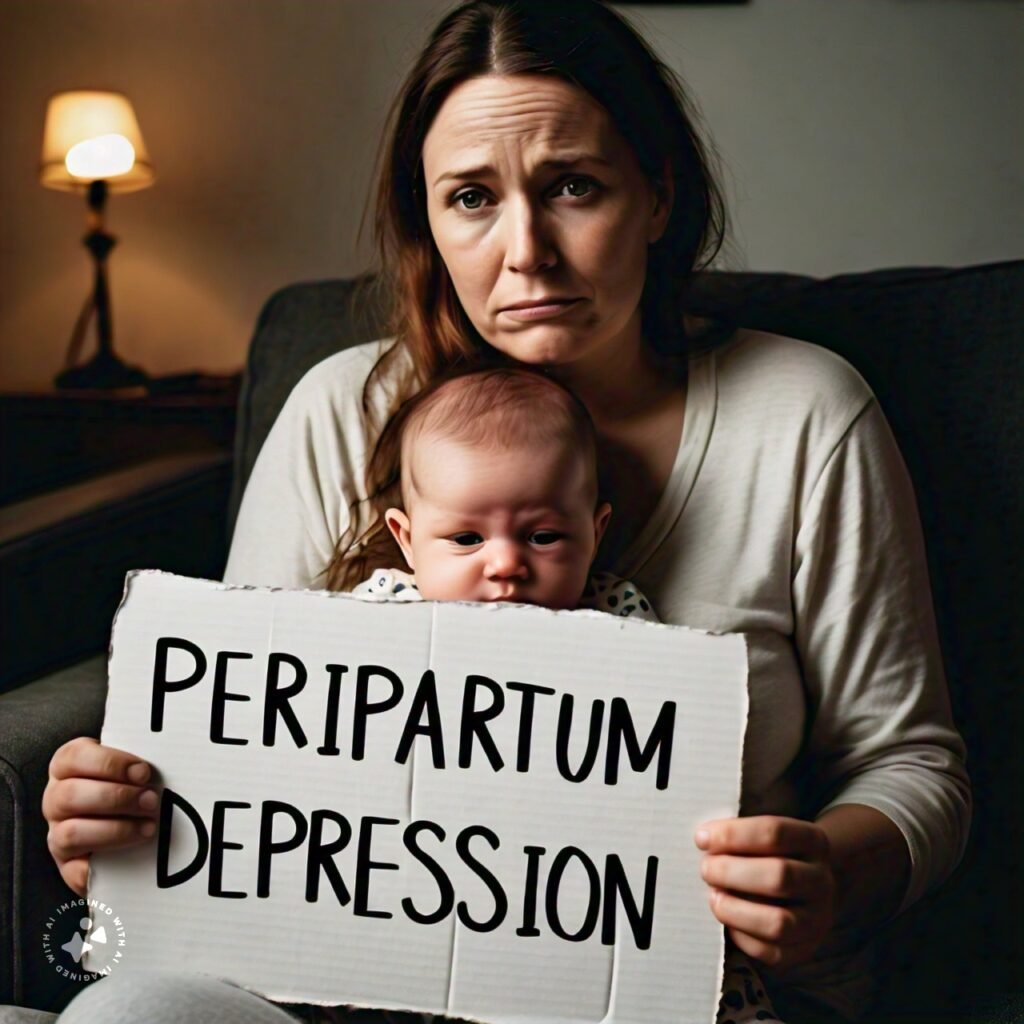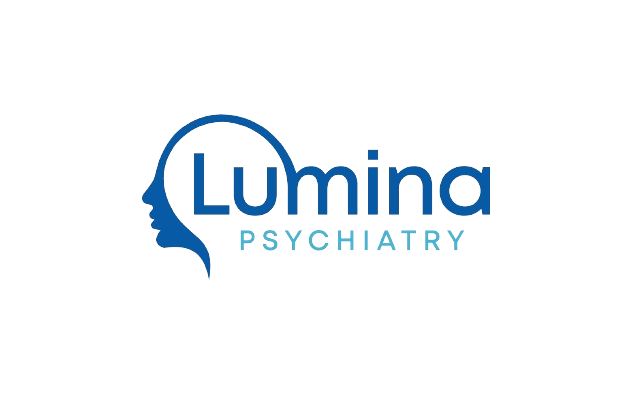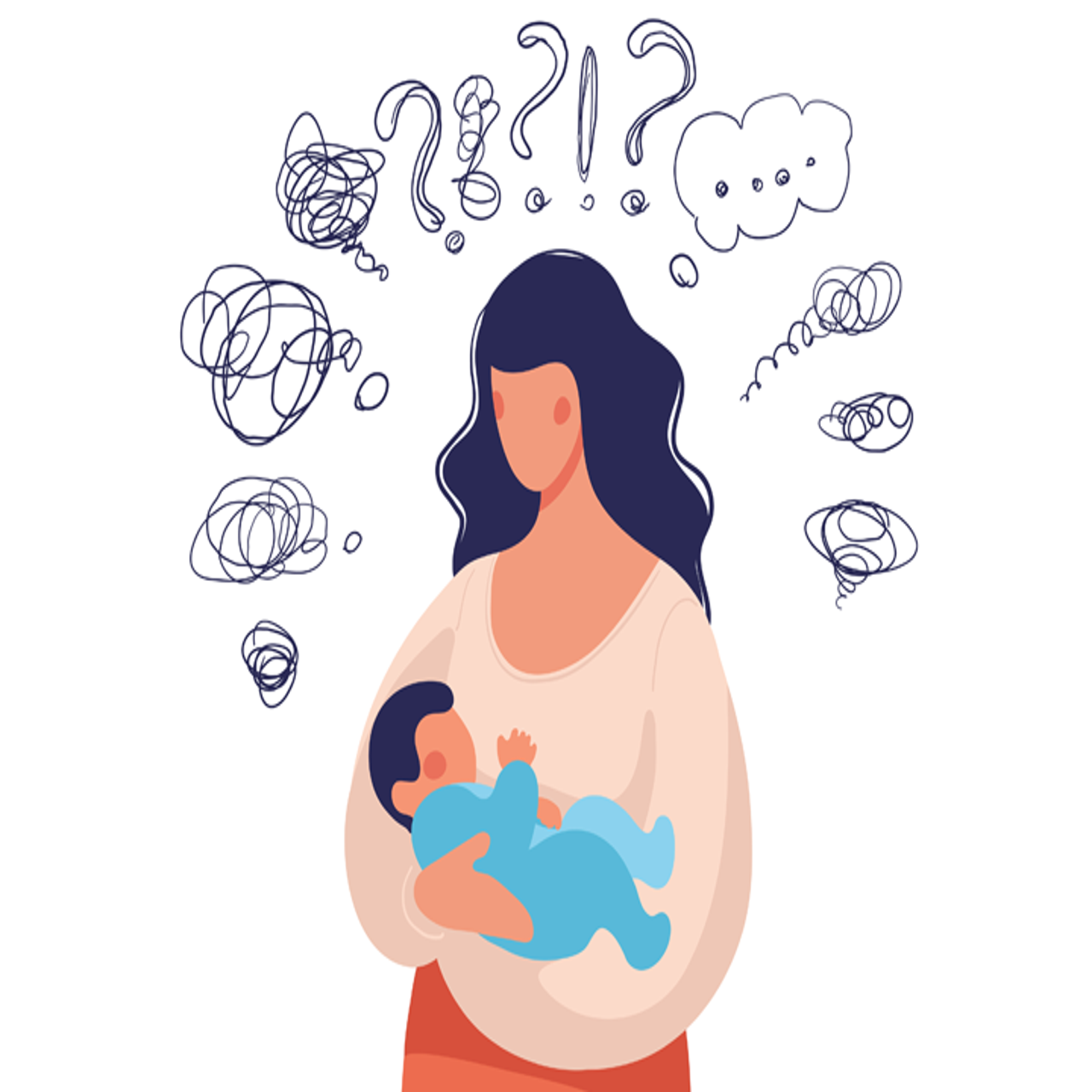Major Depressive Disorder (MDD) with peripartum onset often remains shrouded in silence, leaving affected individuals struggling in isolation. This post aims to demystify the symptoms, risks, diagnosis, and treatment options for peripartum depression, providing hope and guidance for those in need. At Lumina Psychiatry, we offer support and specialized care to help navigate this challenging time with compassion and expertise.
What is Major Depressive Disorder with Peripartum Onset?

Major Depressive Disorder with peripartum onset, often called peripartum depression, affects women who experience significant depressive episodes during pregnancy or in the weeks or months following delivery.
This condition differs significantly from the mild and brief “baby blues,” which affect up to 80% of mothers by causing severe, lasting symptoms that interfere with daily functioning and the ability to care for oneself or one’s baby. A complex blend of physical, emotional, and environmental factors triggers peripartum depression. Hormonal changes during and after pregnancy significantly influence mood and often combine with sleep deprivation, a personal history of depression, and the stresses of newborn care. Recognizing this disorder early is vital for effective management and recovery, ensuring mothers do not face their darkest hours alone. At Lumina Psychiatry, we stress the importance of awareness and proactive care, fostering a supportive environment for healing and resilience.
Difference Between Postpartum Blues and Peripartum Depression
It is crucial to distinguish between the common ‘postpartum blues’ and this condition, as they affect emotional health with varying degrees of severity. Postpartum blues, which affect up to 80% of new mothers, typically manifest as mild sadness, anxiety, irritability, and mood swings that resolve within two weeks after delivery. In contrast, peripartum depression features more severe and persistent symptoms that can impair a woman’s ability to function and care for herself and her baby.
Despite what others might suggest, it is important that women do not take these symptoms lightly. Recognizing the signs of peripartum depression and seeking treatment early is essential. The dismissive attitude of “it’s just baby blues” can be harmful and delay necessary support. Every woman’s experience is valid and warrants attention—peripartum depression is a serious condition that requires professional intervention to ensure the health and well-being of both mother and child.
Symptoms and Risks Associated with Peripartum Depression

Peripartum depression manifests through a range of symptoms that extend beyond typical postpartum challenges. Women may experience overwhelming sadness, severe mood swings, and a persistent feeling of emptiness or hopelessness
Peripartum depression includes a variety of emotional, physical, and cognitive symptoms:
- Emotional Symptoms:
- Overwhelming sadness
- Severe mood swings
- Persistent feelings of emptiness or hopelessness
- Physical Symptoms:
- Changes in appetite or sleep patterns
- Reduced libido
- Physical aches or pains without clear causes
- Cognitive Symptoms:
- Difficulty concentrating
- Indecisiveness
- Severe anxiety about one’s abilities as a mother
Risks of Peripartum Depression
The impact of untreated peripartum depression extends to both the mother and child:
- For the Child:
- Impaired bonding with the mother, which can affect emotional and developmental progress
- Increased risk of behavioral issues and emotional disorders later in life
- For the Mother:
- Potential escalation to chronic depressive episodes
- Increased family stress and potential strain on personal and familial relationships
Peripartum Depression Diagnoses and Treatment
Diagnosing peripartum depression requires a thorough evaluation by a healthcare provider, assessing symptoms, medical history, and emotional well-being. This includes discussions about mood, thoughts, and daily functioning, supplemented by standardized questionnaires to precisely gauge depression levels.
Treatment varies based on the severity of the condition and typically includes psychotherapy, medication, and lifestyle adjustments. A very effective treatment option involves Selective Serotonin Reuptake Inhibitors (SSRIs), which are often preferred due to their safety profile and effectiveness in managing depression symptoms. SSRIs work by increasing serotonin levels in the brain, which can help improve mood, appetite, and sleep. Alongside medication, Cognitive-Behavioral Therapy (CBT) or Interpersonal Therapy (IPT) supports women by addressing the psychological aspects of depression.

Conclusion
Understanding and treating Major Depressive Disorder with peripartum onset is crucial for the health and well-being of both mother and child. At Lumina Psychiatry, we are dedicated to providing effective, compassionate care tailored to the unique challenges of peripartum depression. Our use of evidence-based treatments, including SSRIs and targeted psychotherapies, ensures that each patient receives comprehensive support. If you or someone you know is struggling with symptoms of peripartum depression, we encourage you to reach out for a consultation. Let us help you reclaim your health and experience the joys of motherhood with the support you deserve.




